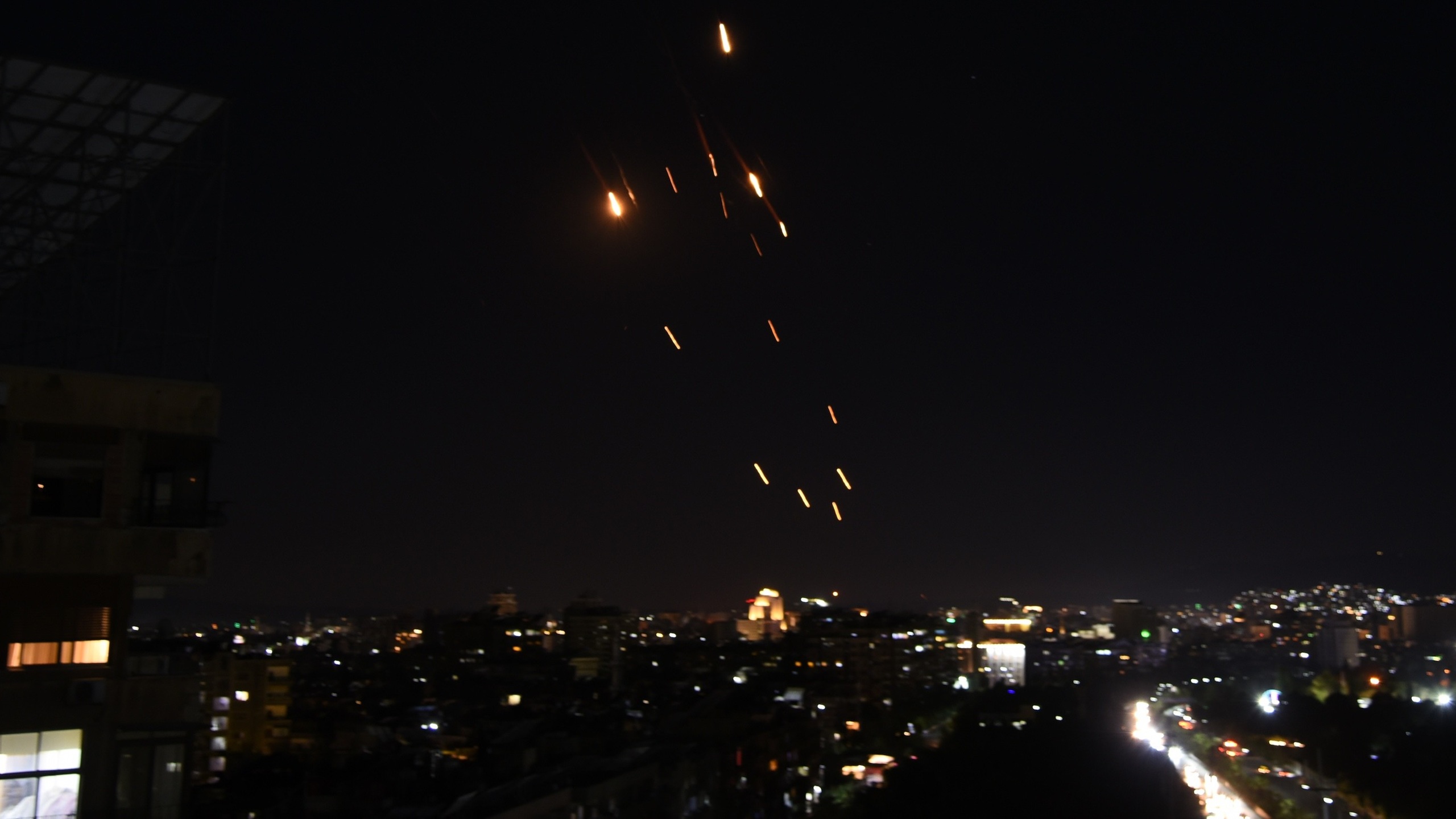What’s Behind Syria’s Silence on the Iran-Israel War?
Syria walks a diplomatic tightrope between Israel and Iran, trying to avoid entanglement while war unfolds in its airspace
[Damascus] While tensions between Iran and Israel have erupted into open warfare, Syria has so far remained officially silent.
The conflict, which began with a series of strikes and counterstrikes, has rapidly escalated into a full-scale confrontation marked by long-range missile exchanges. With missiles from both countries regularly traversing Syrian airspace near Damascus, Syria’s silence has prompted speculation over its political and military calculus.
President Ahmed al-Sharaa’s government has not issued any formal statement. Syrian state media have remained vague, offering only brief remarks about “the importance of Syrian sovereignty” without clarifying the government’s stance on the conflict.
Some analysts suggest Syria’s silence stems from necessity rather than a calculated policy.
Syria’s fragile economy and its deteriorated military capacity after more than a decade of civil war do not allow it to engage in any new political or military adventure
“Syria’s fragile economy and its deteriorated military capacity after more than a decade of civil war do not allow it to engage in any new political or military adventure, regardless of pressure from allies,” said political analyst Samir Abdullah, a professor of international relations at Damascus University.
He told The Media Line that Syria is walking a tightrope. “On one hand, it cannot abandon its traditional alliance with Iran. On the other hand, it realizes that direct or even verbal involvement in this confrontation could expose it to broader Israeli strikes than usual at a time when Syria’s air defenses are insufficient to protect the entire country’s skies, especially given repeated strikes on its positions by the Israeli air force,” he said.
A Western diplomatic source in Beirut, speaking on condition of anonymity, told The Media Line that Russia is pressuring Syria to remain neutral.
Give the gift of hope
We practice what we preach:
accurate, fearless journalism. But we can't do it alone.
- On the ground in Gaza, Syria, Israel, Egypt, Pakistan, and more
- Our program trained more than 100 journalists
- Calling out fake news and reporting real facts
- On the ground in Gaza, Syria, Israel, Egypt, Pakistan, and more
- Our program trained more than 100 journalists
- Calling out fake news and reporting real facts
Join us.
Support The Media Line. Save democracy.
“Moscow has warned Damascus against overt involvement or allowing any party to openly use its territory against Israel, as this could lead to uncontrollable escalation and put Russia’s own military presence at risk,” the source said.
Russia maintains a large military footprint at the Hmeimim air base in Syria’s Latakia province. Analysts believe the Kremlin wants to shield Syria from open confrontation that could destabilize what remains of the country’s fragile stability.
Inside Syria, observers say the regime also fears the domestic fallout of entering the conflict. With the economy collapsing and Western sanctions still in place, even symbolic involvement could trigger public unrest, especially in southern and western areas that have already experienced sporadic protests.
Syrian political commentator Ahmad al-Khatib told The Media Line that the government worries escalation could plunge parts of the country back into chaos, particularly Daraa, Suwayda, and the coastal region, where residents are already facing severe economic strain.
He added: “At a time when the government is facing recurring fuel crises and severe inflation, any open confrontation with Israel would make the domestic situation extremely fragile—a risk that Damascus is well aware of.”
Syria will not be a party to a conflict that does not serve its own stability and the safety of its people
A government official who declined to be named echoed that sentiment. Speaking to The Media Line, the source said: “Syria believes in every nation’s right to defend its land and views the current events in the region as a direct result of Israel’s aggressive policies towards the region’s states and their populations over decades. Nevertheless, Syria will not be a party to a conflict that does not serve its own stability and the safety of its people, who have paid a high price during years of war. We remain committed to our sovereignty and do not allow our lands or airspace to be used by any party without our approval. At the same time, we also do not forget Iran’s negative role in Syria.”
This position suggests that Damascus is carefully walking a diplomatic line—neither condemning Iran nor provoking Israel—while emphasizing national sovereignty and steering clear of direct entanglement.
As the conflict escalates, Syria’s stance could come under pressure. A shift may occur if Iran demands greater support or if Israeli strikes intensify and reach deeper into Syrian territory.
Some Western outlets, including The National Interest, have floated the possibility of a Russian-brokered understanding between the Syrian and Israeli governments to limit hostilities. These reports, however, remain unconfirmed.
What is clear is that Damascus recognizes this is not its war, and that any misstep could bring catastrophic consequences, given the country’s precarious economic and political position.
This is not our war … but it passes over our heads every night
A former Syrian Defense Ministry official, speaking anonymously, told The Media Line: “This is not our war … but it passes over our heads every night.”
That leaves one pressing question: How long can Syria maintain this silence? Is neutrality a sustainable strategy, or merely a pause before it is pulled into a broader regional conflict?
For now, Damascus continues to watch from the sidelines. But in a region known for shifting alliances and sudden turns, silence may prove a short-lived luxury.



